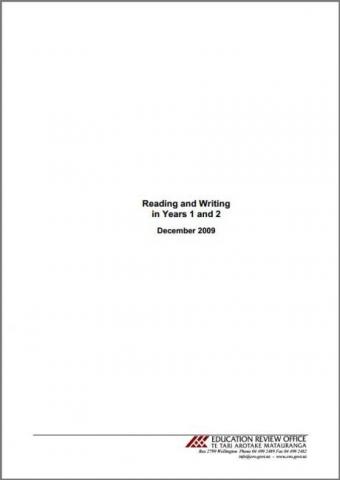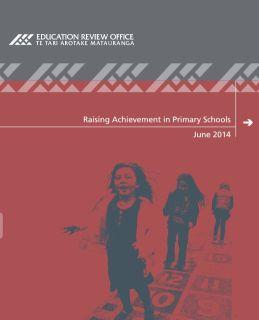Reading and Writing in Years 1 and 2
Published: 02 Dec 2009
This Education Review Office (ERO) evaluation focused on how effectively reading and writing was taught in the first two years of schooling, and on how well teachers used assessment information to plan and evaluate their teaching.
- Audience:
- Early learning
- Parents
- Schools
- Content type:
- Research
- Topics:
- Reading
- Writing
- Curriculum
- National Administrative Guidelines (NAGs)
- Instructional teaching



